Pixel Pump is an open source vacuum pump for manual SMT assembly. It comes with a comfortable pen, a foot pedal, RGB LED buttons, and a variety of features that make hand assembly a lot more fun. It’s the perfect companion for manual SMT soldering applications, from individual prototypes to small production runs.
Pixel Pump ships with a set of five stainless-steel nozzles in each of five different sizes, with outer diameters ranging from 0.3 mm all the way up to 1.8 mm. With this set, you should be able to pick and place most SMD components, including small 0402 passives, larger parts like inductors and ICs, and just about everything in between. The nozzles are held in place by a Luer lock slip fitting that facilitates quick nozzle changes and broad compatibility with third-party nozzles. The pen itself features a barbed connection for the air hose and incorporates four M8 steel nuts to give it some heft and to enable magnetic attachment to Pixel Pump.
Tactile silicone buttons with RGB backlighting offer full control over the unit. You can change operation modes, switch between high- and low-power settings, or activate reverse mode to clean your nozzle. The buttons also allow you to configure things like vacuum power and LED brightness.
Pixel Pump has a pressure-relief valve that dumps vacuum to ensure that your part gets released quickly when you release the foot pedal. Optionally, you can configure that valve to switch from suction mode to pressure mode, which quickly and easily cleans the nozzle in case you have accidentally sucked in debris like solder paste.
A sintered air filter protects the vacuum pump and valves from debris that might otherwise be sucked into the system. It is accessible from the outside and can easily be cleaned and reused.
Pixel Pump was designed primarily for individuals and organizations that manufacture one-off prototypes, but it’s also well suited for small production runs. It’s super easy to use and is actually faster than an automated pick-and-place machine for smaller batch sizes, especially when combined with SMD Magazines. Pixel Pump is the perfect companion for hobbyists and professionals who love making their own PCBs.
Our SMD Magazines are injection-molded containers for SMD tape. They are custom built to store components and present them for picking. Thanks to a spring-loaded mechanism at the front, these magazines accommodate most commonly used parts, including those packaged on tape up to 12 mm wide and 9.5 mm in height. Each magazine can hold plenty of components (900 0603 passives, for example). Finally, you can use standard, 10-mm-wide, adhesive labels to mark the contents of each magazine, which makes organization a breeze.
Each SMD-Magazine Rail presents up to eight magazines at the perfect angle for you to pick and place their components using Pixel Pump. You can also use these rails to group components for specific projects. They are equipped with non-slip rubber feet and weighted for extra stability.
Each Pixel Pump comes with a foot pedal, but there are a number of reasons why you might want a second pedal. In addition to switching modes and toggling power settings, a second foot pedal provides hands-free control of the iBOM application. iBOM generates an HTML rendering of your design, including a list of every part. It is extremely helpful when picking and placing components by hand. With a secondary foot pedal, you can advance seamlessly from component to component while keeping your eyes and your hands focused on the task in front of them.
| Pixel Pump | PK-5A | 394-01 | AV-6000-FS-220 | Low-end vacuum pump | |
|---|---|---|---|---|---|
| Manufacturer | Robins Tools | JBC | Hakko | Virtual Industries | Various |
| Open Source | PCB, source code, and STL files | No | No | No | No |
| Foot-Pedal Support | Yes | Yes | No | Yes | No |
| Secondary Foot-Pedal Support | Optional secondary foot pedal for additional control | No | No | No | No |
| Adjustable Vacuum | Yes | No | No | Yes | No |
| Vacuum-Relief Valve | Yes | No | No | No | No |
| User-Serviceable Air Filter | Yes | Yes | No | Yes | No |
| Max Suction | 499 mBar | 550 mBar | Unknown | 340 mBar | Unknown |
| Max Pressure | 499 mBar | N/A | N/A | N/A | N/A |
| Hackability | Two expansion ports & unused internal screw holes for a custom PCB | None | None | None | None |
Much of Pixel Pump, including the pen and parts of the foot pedal, are 3D printed. This allows for quick adjustments and fixes during production. It also allows people to print replacement parts if needed, since the project will be fully open source. Our source code, STL files, and schematics are available on GitHub:
"Electronic enthusiasts, developers and makers looking for a quicker way to manually build PCB boards may be interested in the Pixel Pump PCB pick and place machine. "
Produced by Robins Tools in Hergatz, Germany.
Sold and shipped by Crowd Supply.
Contains Pixel Pump, one foot pedal, a power supply, a USB Type-C cable, and a set of nozzles suitable for picking and placing most SMD components, including small 0402 passives, larger parts like inductors and ICs, and just about everything in between. SMD magazines, SMD magazine rails, and power cord are not included. For a limited time, discounted 20% off from the $499 retail price.
A second foot pedal unlocks even more features, like USB-driven remote control for tools like iBOM
SMD Magazines are a great way to organize and consume SMD parts. They can load up to 12-mm-wide, 9.5-mm tall tapes. They replace those hard-to-find plastic bags while being an excellent source of parts to pick and placing using Pixel Pump.
An SMD Magazine rail holds up to eight SMD Magazines. A given rail can be used to hold a project-specific set of magazines indefinitely. Magazines are held at a right angle, ready to be picked and placed by Pixel Pump.
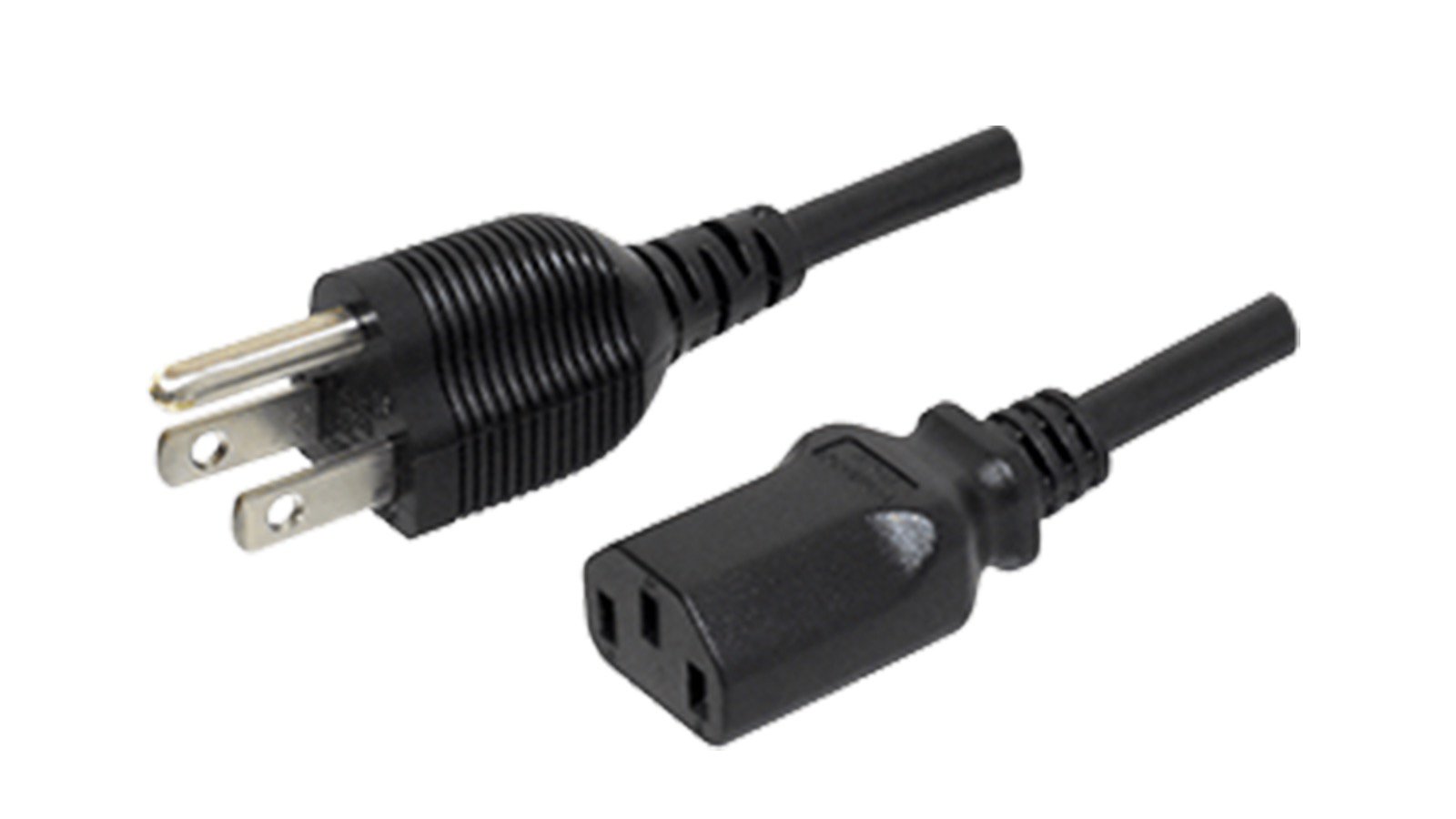
From the Crowd Supply Basics project.
An AC cable with a US plug and a C13 plug to fit a C14 port.
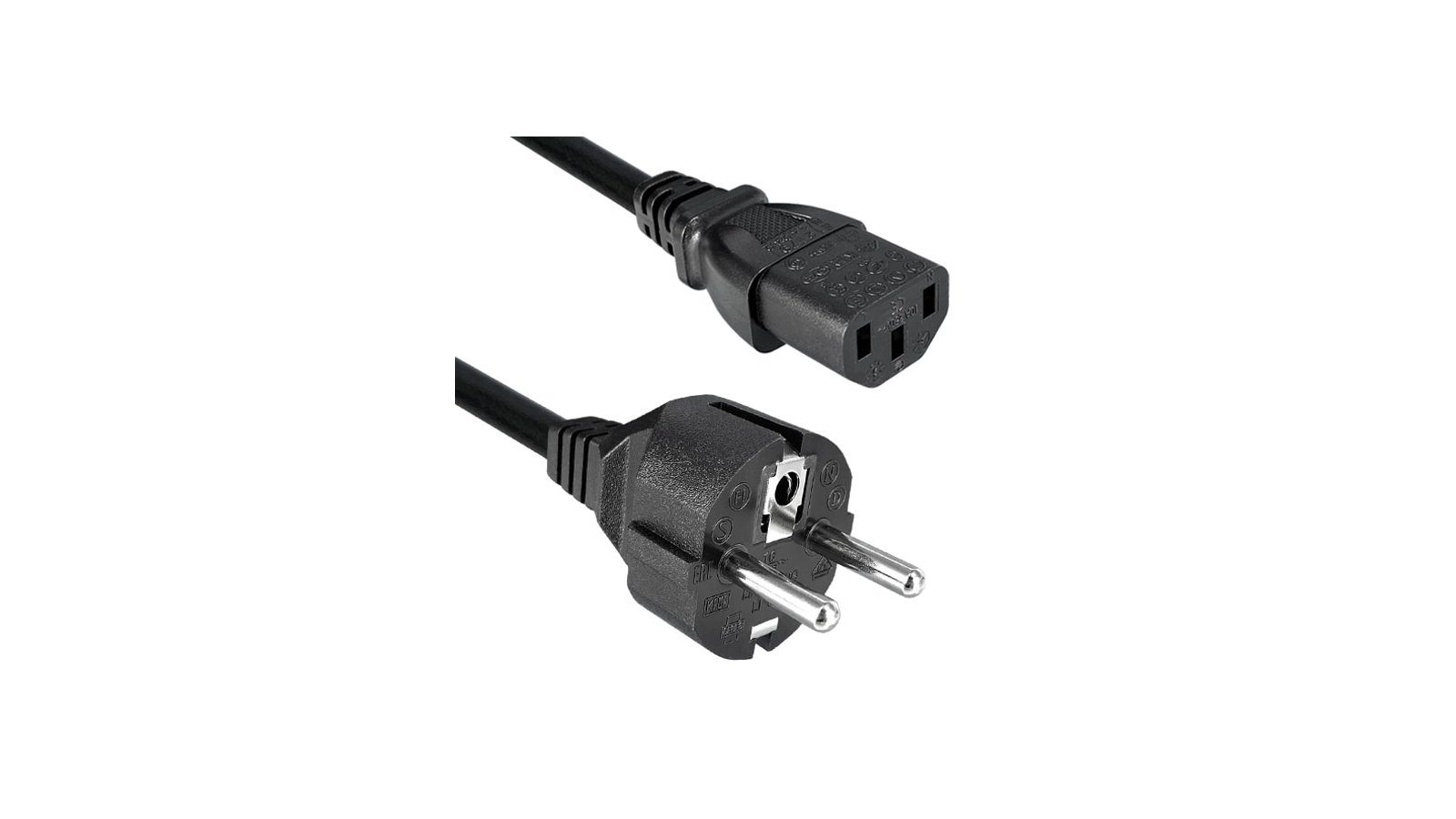
From the Crowd Supply Basics project.
An AC cable with an EU plug and a C13 plug to fit a C14 port.
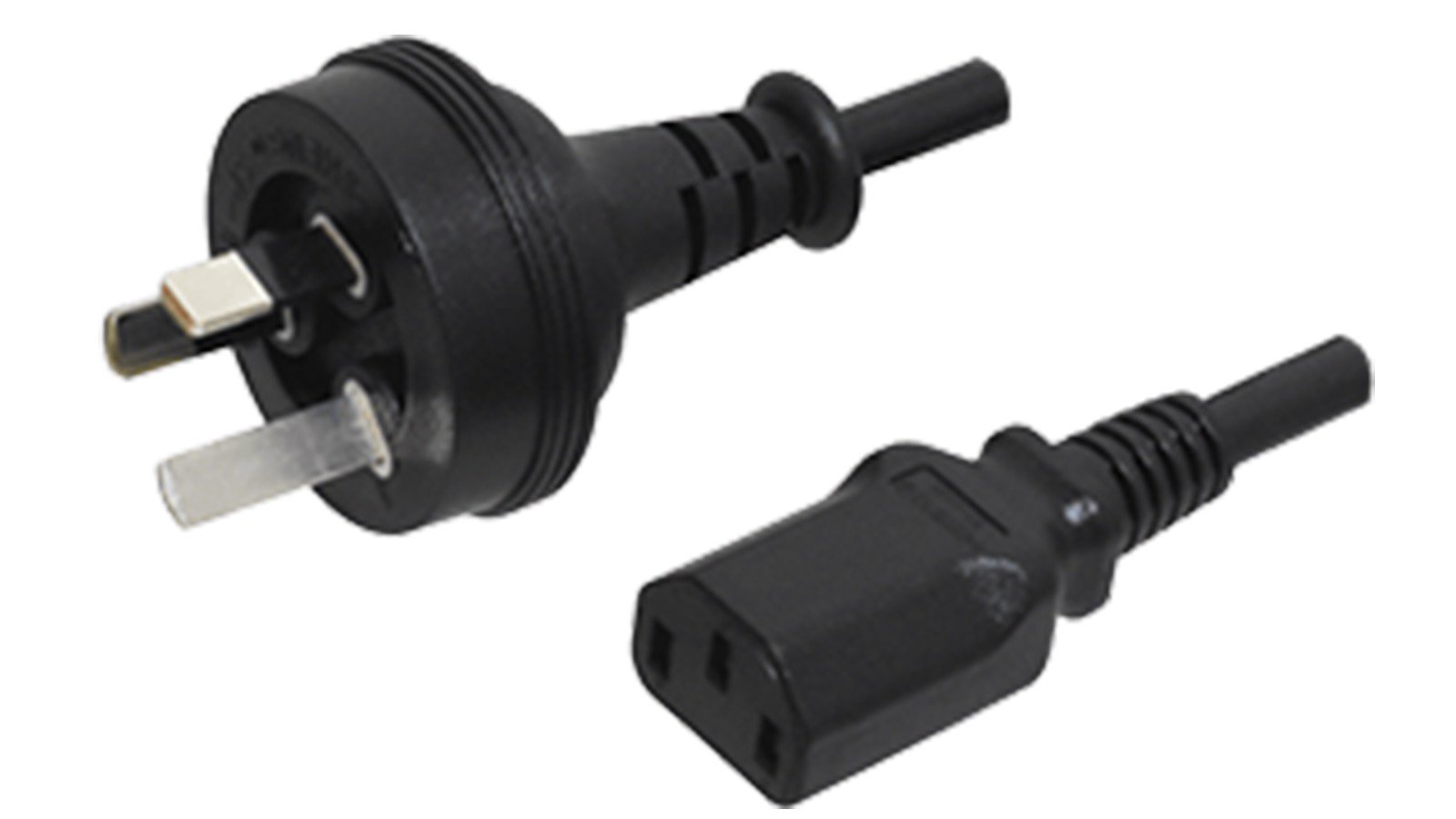
From the Crowd Supply Basics project.
An AC cable with an AU plug and a C13 plug to fit a C14 port.
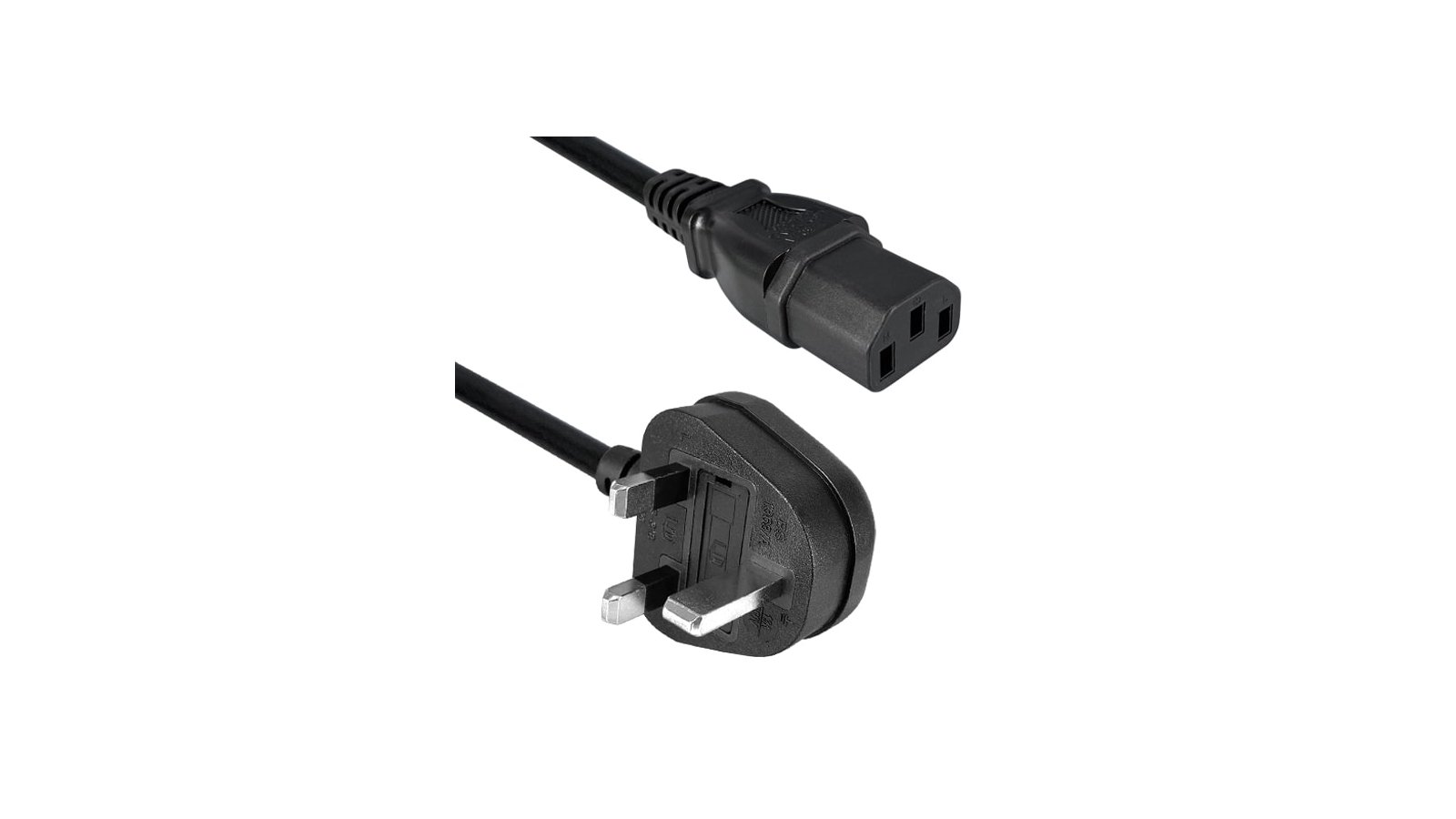
From the Crowd Supply Basics project.
An AC cable with a UK plug and a C13 plug to fit a C14 port.

As an electronics and product design enthusiast, I am designing and building tools based on my personal needs.
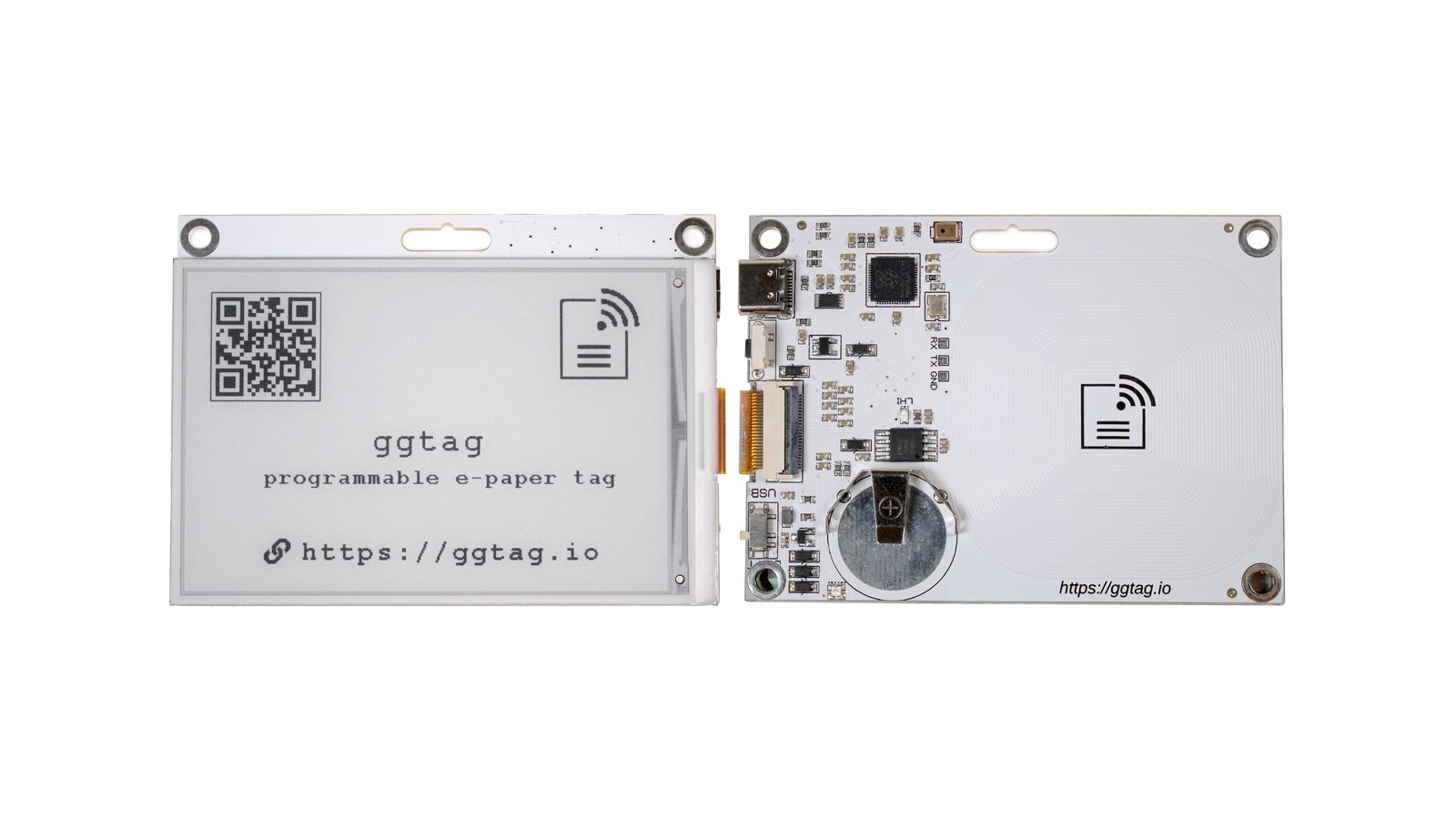
A programmable e-paper badge with 125 kHz RFID emulation
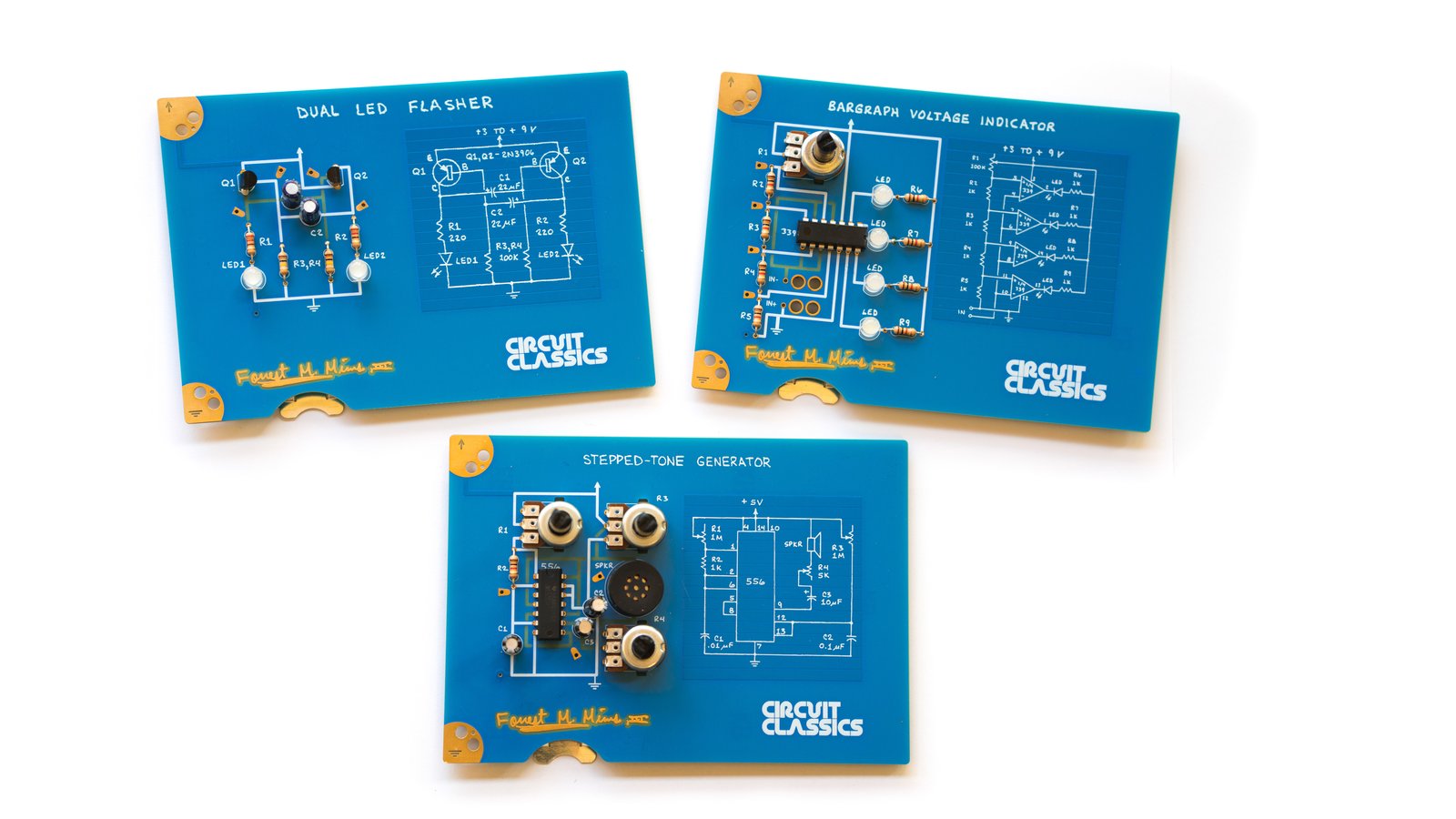
Exquisite printed circuit boards that bring to life Forrest Mims' vintage designs from "Getting Started in Electronics."
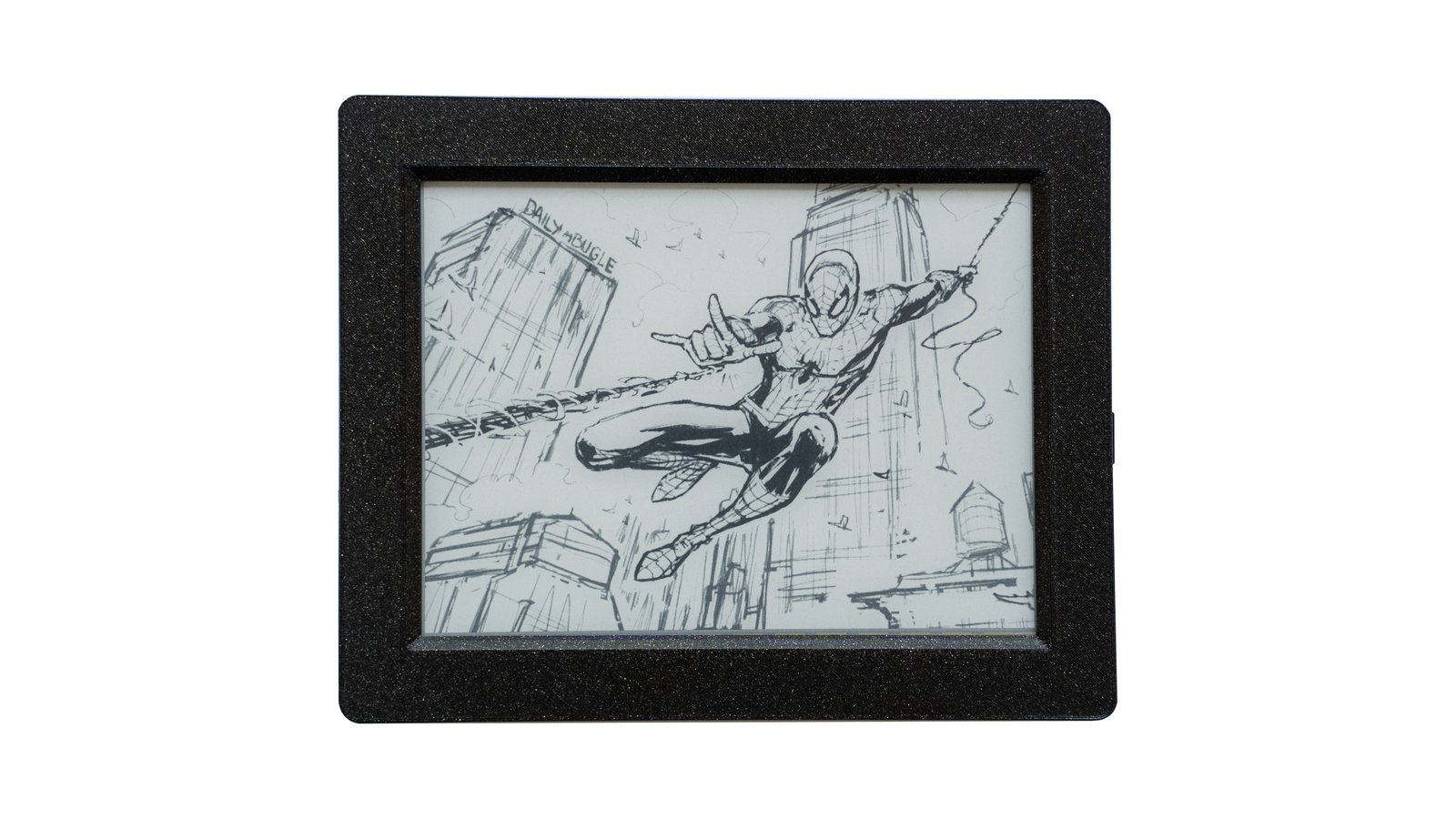
Versatile, easy-to-use, Wi-Fi-enabled 6" e-paper display with a touchscreen and frontlighting